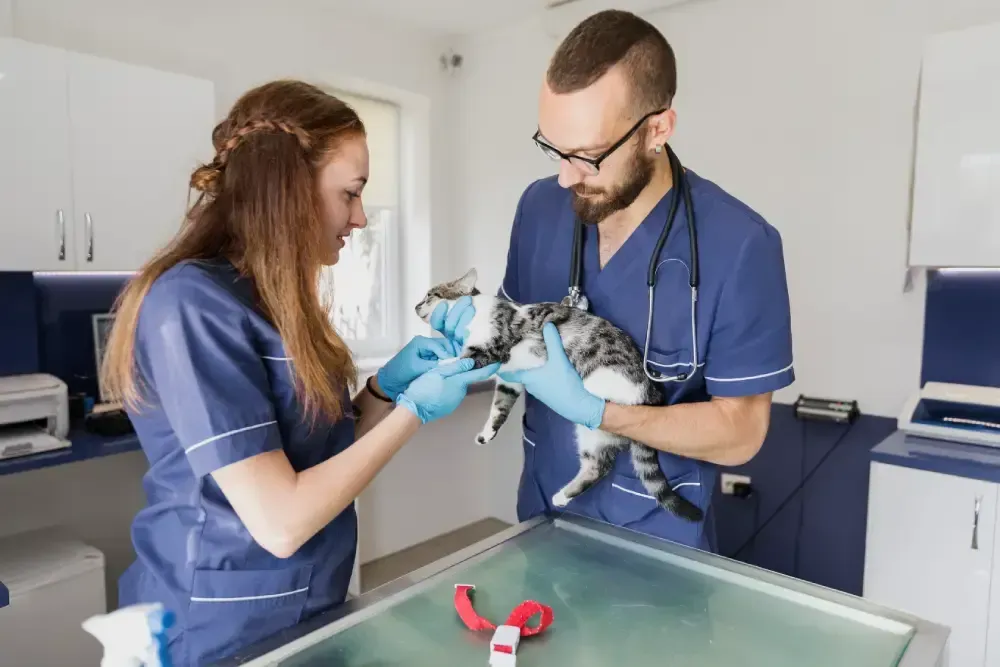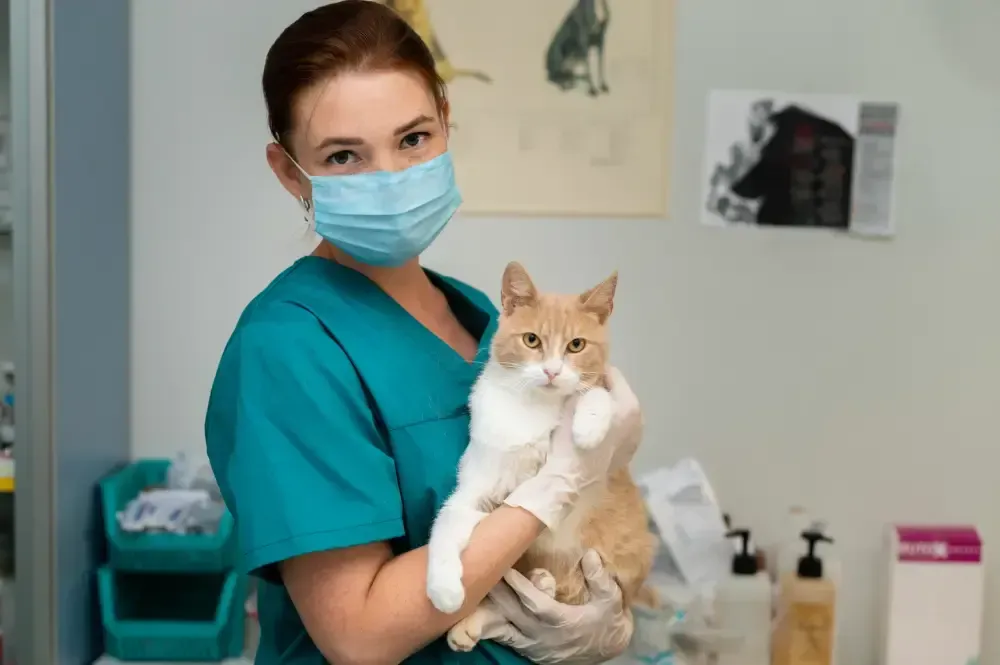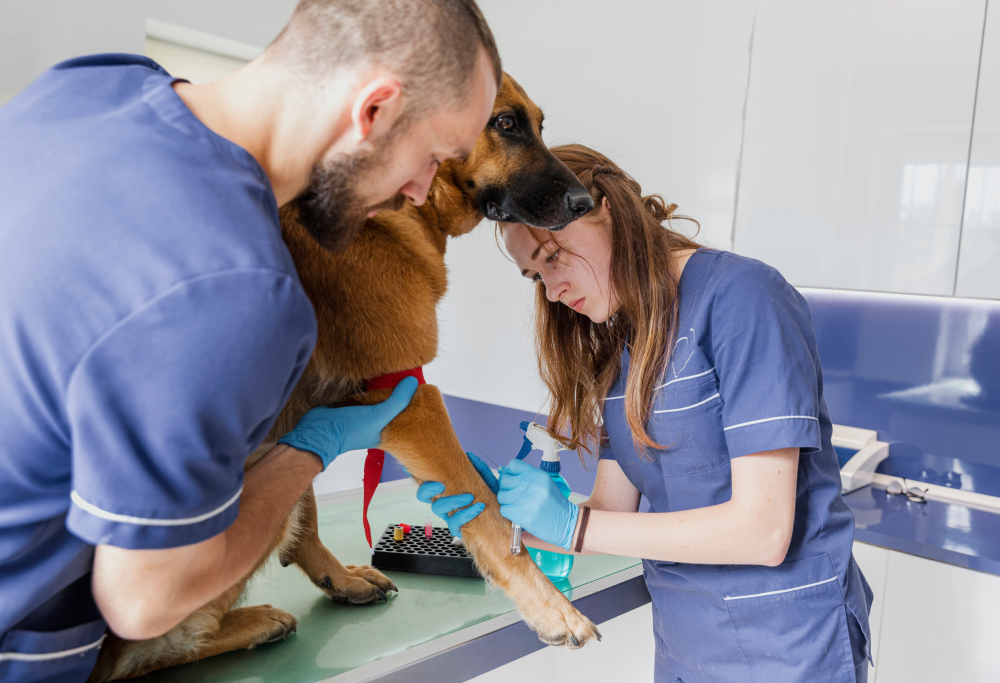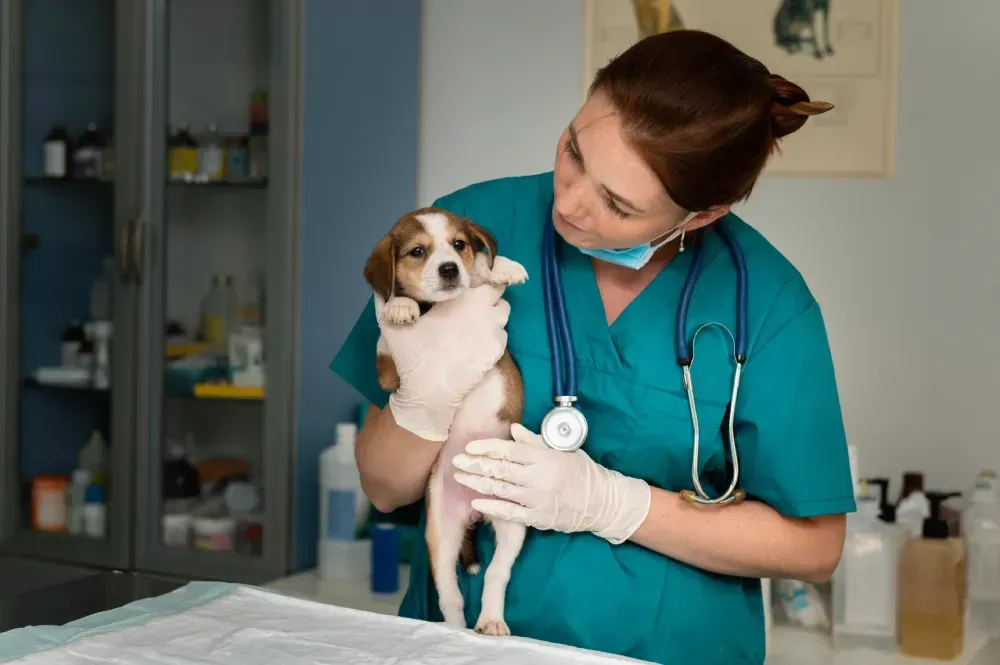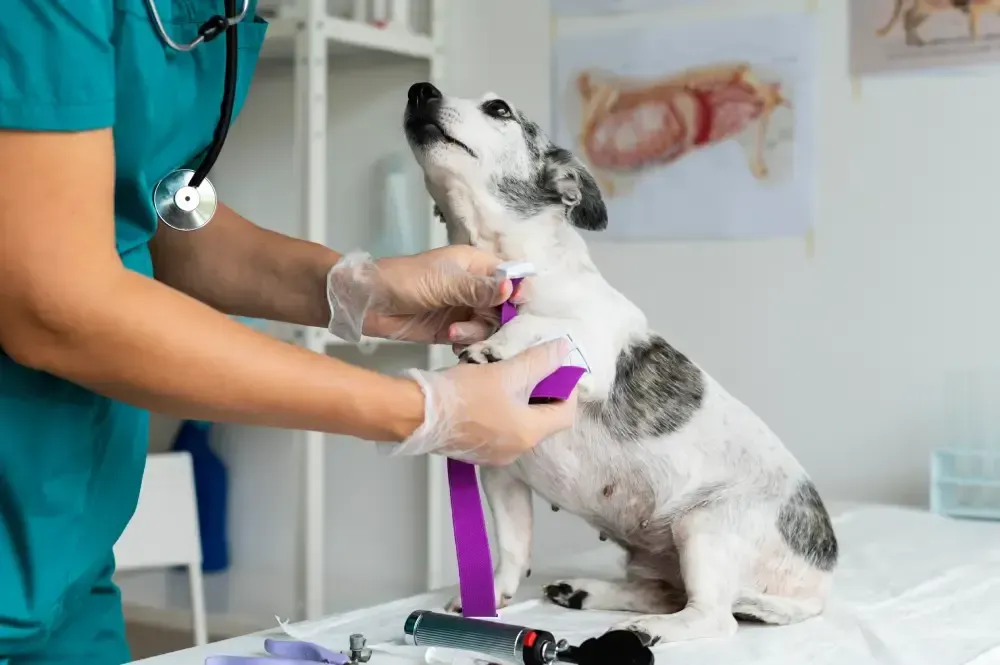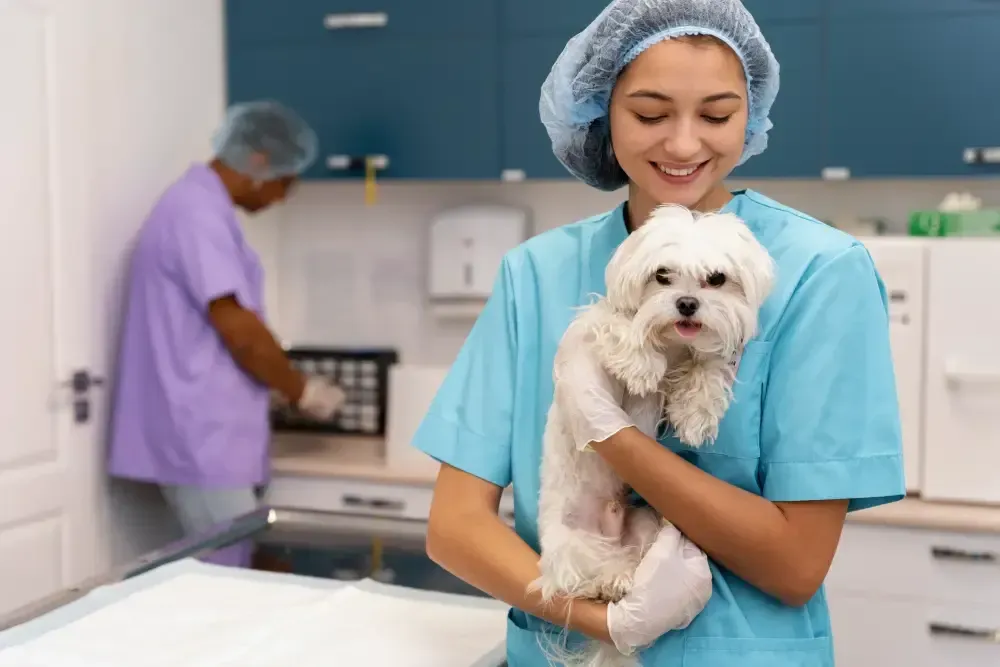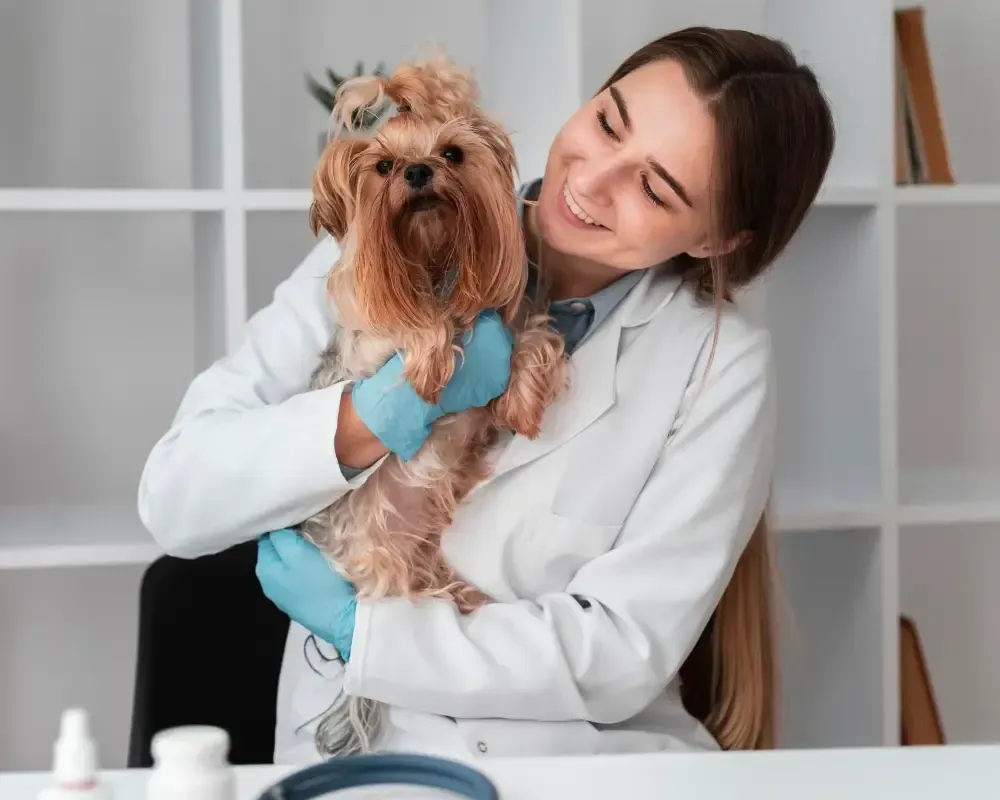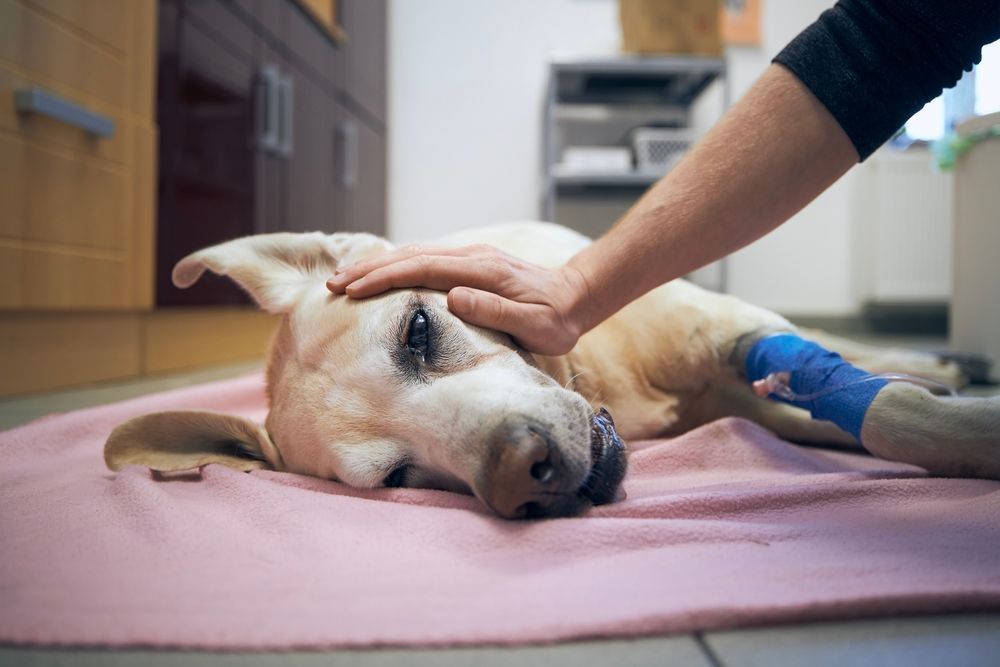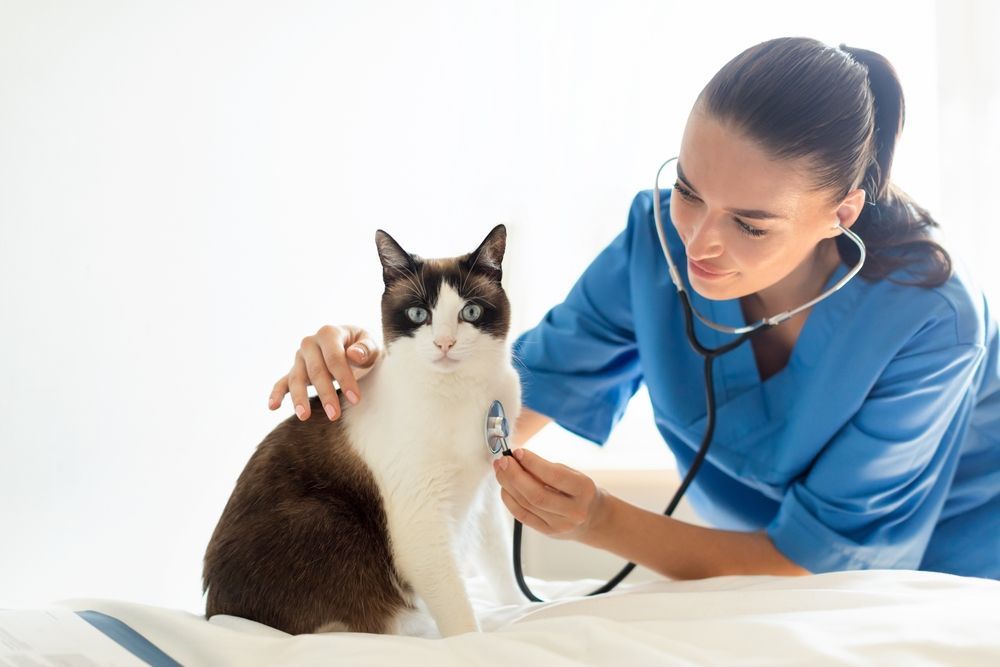Emergency Vet: What to Expect During a Pet Emergency
April 29, 2025
That moment when you realize something is seriously wrong with your beloved pet is terrifying. Whether it's a sudden accident, a puzzling change in behavior, or a known health condition taking a turn for the worse, knowing what to expect when you rush to the emergency vet near me can make a stressful situation a little more manageable. This guide walks you through the process, so you’re better prepared to advocate for your furry, scaled, or feathered friend during a crisis.
Recognizing a Pet Emergency: When to Seek Immediate Care
Sometimes, it's obvious – a dog hit by a car, a cat struggling to breathe. Other times, the signs are subtler. Knowing when to head straight to the emergency vet can save your pet's life. Here are some key indicators that warrant immediate veterinary attention. If you’re ever in doubt, it’s always best to err on the side of caution and contact your regular vet or an emergency vet clinic.
- Difficulty Breathing: Labored breathing, excessive panting (when not due to heat or exercise), blue-tinged gums or tongue, or persistent coughing are all red flags.
- Severe Trauma: Obvious broken bones, deep wounds, significant bleeding, or suspected internal injuries from a fall or accident require immediate care.
- Seizures: A single seizure warrants a call to your vet, but multiple seizures in a row or a seizure lasting longer than a few minutes is an emergency.
- Unconsciousness: If your pet is unresponsive, unable to stand, or collapses, seek immediate veterinary assistance.
- Poisoning: Suspected ingestion of toxins like antifreeze, rat poison, medications, or toxic plants requires immediate intervention. Contact your vet, emergency vet, or a pet poison control hotline immediately.
- Severe Vomiting or Diarrhea: Especially if there's blood present, or if your pet is weak, lethargic, or showing signs of dehydration.
- Sudden Swelling or Pain: A bloated abdomen (especially in large-breed dogs), inability to urinate, or signs of extreme pain (whining, shaking, aggression when touched) should be evaluated immediately.
- Eye Injuries: Any trauma to the eye, sudden cloudiness, or squinting requires prompt attention to prevent vision loss.
- Dystocia: Difficulty giving birth or prolonged labor can be life-threatening for both mother and offspring.
First Steps: Before You Head to the Emergency Vet
Once you've determined your pet needs emergency care, take a few key steps to prepare for the trip.
- Call Ahead: If possible, call the emergency vet clinic to let them know you're on your way and briefly describe the situation. This allows them to prepare for your arrival and prioritize cases. Pet Urgent Care of Montgomery can be reached via the contact information on their website.
- Safety First: If your pet is in pain or distress, they may bite or scratch, even if they're normally docile. Use caution when handling them. A towel or blanket can be used as a makeshift muzzle for dogs (unless they are having difficulty breathing) or to gently restrain a cat.
- Gather Information: Bring any relevant medical records, medication bottles, and information about your pet's diet and recent history. If you suspect poisoning, bring the packaging of the suspected toxin.
- Secure Transport: Use a carrier for cats and small dogs. For larger dogs, use a leash and, if possible, have someone accompany you to help manage your pet.
- Payment Options: Be prepared to discuss payment options with the emergency vet clinic. Most require payment at the time of service, and it's helpful to know what forms of payment they accept.
Arriving at the Emergency Vet: Triage and Assessment
When you arrive at the emergency vet, the first step is usually triage. A veterinary technician or vet will quickly assess your pet's condition to determine the severity of the emergency and prioritize cases. This means that even if you arrived first, a pet with a more critical condition may be seen before yours.
The triage process typically involves:
- Vital Signs: Checking your pet's heart rate, respiratory rate, temperature, and blood pressure.
- Brief History: Gathering a brief overview of the problem from you. Be prepared to answer questions about when the problem started, what symptoms you've observed, and any relevant medical history.
- Visual Examination: A quick visual assessment of your pet's overall condition, looking for signs of trauma, distress, or abnormalities.
After triage, your pet will be taken to the treatment area for a more thorough examination by the vet. This may involve:
- Detailed Physical Exam: A comprehensive assessment of all body systems.
- Diagnostic Testing: Depending on the situation, the vet may recommend blood tests, X-rays, ultrasound, or other diagnostic procedures to help determine the cause of the problem.
- Stabilization: The initial focus will be on stabilizing your pet's condition. This may involve administering oxygen, starting an IV for fluids and medications, and providing pain relief.
Understanding the Treatment Plan and Costs
Once the vet has a better understanding of your pet's condition, they will discuss a treatment plan with you. This plan will outline the recommended course of action, including:
- Treatment Options: A description of the available treatment options, including the benefits and risks of each.
- Medications: A list of medications that will be administered, along with their purpose and potential side effects.
- Prognosis: An estimate of your pet's chances of recovery.
- Cost Estimate: A detailed estimate of the cost of treatment. Emergency vet care can be expensive, so it's important to have a clear understanding of the financial implications before proceeding. Don't hesitate to ask questions about the estimate and explore all available options.
Making Informed Decisions: Asking the Right Questions
During a pet emergency, it's easy to feel overwhelmed and unsure of what to do. Don't be afraid to ask questions. The veterinary team is there to help you make informed decisions about your pet's care. Here are some questions you might want to ask:
- What is the most likely cause of my pet's condition?
- What are the treatment options, and what are the pros and cons of each?
- What are the potential risks and complications of treatment?
- What is the prognosis for my pet's recovery?
- How long will my pet need to stay in the hospital?
- What is the estimated cost of treatment?
- What are the payment options?
- How can I best care for my pet at home after discharge?
- Who should I contact if I have questions or concerns after we leave?
- Is Pet Urgent Care of Montgomery the best facility to address my concerns?
During Treatment and Hospitalization
Depending on the severity of your pet's condition, they may need to be hospitalized for observation and treatment. During this time, the veterinary team will closely monitor your pet's vital signs, administer medications, and provide supportive care.
- Communication is Key: Stay in close communication with the vet and veterinary staff. Ask for updates on your pet's condition and don't hesitate to voice any concerns you may have.
- Visiting Your Pet: Some emergency vet clinics allow visitation, while others have limited visiting hours or restrictions due to the intensive care environment. Ask about the clinic's visitation policy.
- Trust the Professionals: It's natural to feel anxious and worried when your pet is in the hospital. Trust that the veterinary team is doing everything they can to provide the best possible care.
Continuing Care at Home
Once your pet is stable enough to go home, the vet will provide you with detailed instructions for continuing care. This may include:
- Medications: A list of medications to administer, along with the dosage, frequency, and route of administration.
- Diet: Specific dietary recommendations, such as a bland diet or prescription food.
- Activity Restrictions: Guidelines on limiting your pet's activity level to allow for healing.
- Wound Care: Instructions on how to clean and bandage any wounds.
- Follow-Up Appointments: Scheduling follow-up appointments with your regular vet to monitor your pet's progress.
The Emotional Toll of a Pet Emergency
Dealing with a pet emergency can be emotionally draining. It's important to acknowledge your feelings and seek support if you need it.
- Talk to Someone: Talk to your family, friends, or a therapist about your feelings.
- Join a Support Group: Consider joining a pet loss support group to connect with others who understand what you're going through.
- Practice Self-Care: Make time for activities that help you relax and de-stress.
- Remember the Good Times: Focus on the positive memories you have with your pet.
Preparing for the Future: Pet Insurance and Emergency Funds
While you can't predict when a pet emergency will occur, you can take steps to prepare for the unexpected.
- Pet Insurance: Consider purchasing pet insurance to help cover the cost of veterinary care. Research different insurance plans to find one that fits your budget and your pet's needs.
- Emergency Fund: Set aside an emergency fund specifically for pet-related expenses. Even a small amount saved each month can make a big difference in a crisis.
- First-Aid Kit: Assemble a pet first-aid kit with essential supplies like bandages, antiseptic wipes, and a thermometer.
- Know Your Resources: Keep a list of local emergency vet clinics, your regular vet's phone number, and the ASPCA Animal Poison Control Center hotline readily available. Pet Urgent Care of Montgomery's website has contact information and directions for their facility.
The information provided here can ease your worries and help you make more informed decisions. The key is to be prepared, stay calm, and advocate for your pet's well-being.
Pet Urgent Care of Montgomery
2585 Bell Rd, Montgomery, AL 36117, United States
(334) 600-4050
